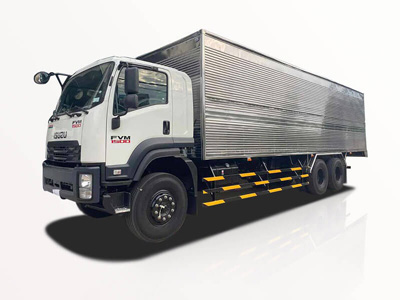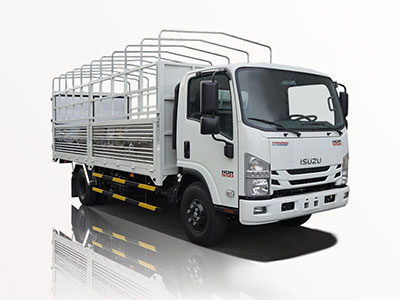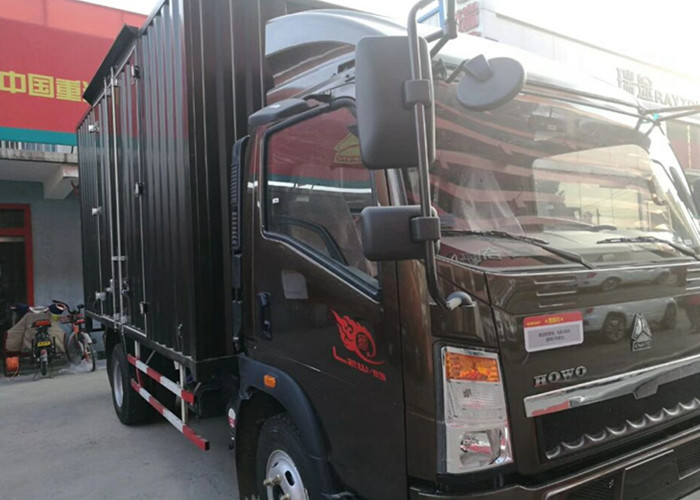In the world of lawn care and landscaping, efficiency, effectiveness, and ease of use are paramount. One equipment piece that plays a critical role in achieving these goals is the lawn spray truck. These specialized vehicles are essential for the application of fertilizers, pesticides, herbicides, and other lawn care products. This comprehensive guide will delve deep into the world of lawn spray trucks, covering various aspects including types, features, advantages, maintenance, and their role in successful lawn care operations.
What is a Lawn Spray Truck?
A lawn spray truck is a specialized vehicle designed to transport and apply liquids such as water, fertilizers, herbicides, and pesticides to lawns, gardens, and other landscaped areas. Unlike standard pickup trucks, these vehicles are equipped with tanks, spray systems, and other features that facilitate the efficient application of these substances across large areas.
Key Features of Lawn Spray Trucks
- Tank Capacity: The tanks usually have a capacity ranging from 100 to 500 gallons, depending on the size of the truck and the intended use.
- Spraying Equipment: High-quality spray pumps, hoses, and nozzles allow for precise application of liquids.
- Vehicle Type: Lawn spray trucks can be mounted on various types of vehicles, including flatbed trucks, trailers, and dedicated spray vehicles.
- Control Systems: Modern spray trucks often include digital control systems that allow operators to monitor and adjust spray rates in real time.
Types of Lawn Spray Trucks
1. Standard Spray Trucks
Standard spray trucks are versatile and commonly used for routine lawn maintenance, including fertilizer application and pest control. They can be mounted on various trucks or trailers to suit different operational needs.
2. High-Pressure Spray Trucks
These trucks are designed for specific applications requiring high-pressure spraying, such as cleaning debris or applying herbicides effectively. They often come with powerful engines and advanced spray systems.
3. Multi-Product Spray Trucks
These trucks can hold multiple types of sprays or fertilizers, allowing operators to tackle different needs without needing to switch vehicles. They are beneficial for businesses that offer diverse lawn care services.
4. Enclosed Spray Trucks
Enclosed spray trucks protect chemicals from external elements, ensuring that products are stored safely and efficiently. This option is particularly useful for businesses that operate in various weather conditions.
Comparison Table of Spray Truck Types
| Type | Best For | Features |
|---|---|---|
| Standard Spray Trucks | General lawn maintenance | Versatile, various mounting options |
| High-Pressure Spray Trucks | Pest control, cleaning | Powerful engines, high-pressure systems |
| Multi-Product Spray Trucks | Diverse application needs | Multiple product compartments |
| Enclosed Spray Trucks | All-weather operation | Protection from the elements |
Advantages of Using Lawn Spray Trucks
1. Efficiency and Speed
Lawn spray trucks allow for quick and efficient application of treatments over large areas. The ability to carry significant amounts of product means fewer trips back to the supply site, saving time and providing faster service to clients.
2. Precision Application
Modern spray systems provide precise control over the amount and distribution of liquids. This precision reduces waste and ensures that every part of the lawn receives the appropriate treatment.
3. Improved Safety
Lawn spray trucks equipped with advanced controls and safety features minimize the risk of spills and accidents. Operators can manage their sprays more effectively, promoting safer operating environments for themselves and their clients.
4. Cost-Effectiveness
Investing in a lawn spray truck can lead to cost savings over time. By enabling faster and more efficient applications, businesses can reduce labor costs while increasing the number of jobs completed within a given timeframe.
Maintaining Your Lawn Spray Truck
1. Regular Inspections
All components of the lawn spray truck should be regularly inspected, including the tank, pumps, hoses, and nozzles. Regular checks help prevent issues such as leaks or malfunctions.
2. Cleaning after Use
To avoid contamination between different products and ensure the longevity of equipment, always clean the spray system thoroughly after each use. Rinsing the tank, hoses, and nozzles will also prevent corrosion and buildup.
3. Seasonal Maintenance
Before and after the spray season, perform comprehensive maintenance checks. This includes checking fluid levels, battery condition, tire pressure, and overall vehicle integrity.
4. Record Keeping
Keep detailed records of maintenance, repairs, and usage patterns. This information can help you anticipate future needs and measure overall truck performance.
Investing in a Lawn Spray Truck: Key Considerations
1. Budget
Your budget will significantly influence your choice of a lawn spray truck. Prices can range widely based on the type, size, and features of the truck. Consider both upfront costs and long-term operating costs when making your decision.
2. Intended Use
Identify the primary purpose of your spray truck. If you primarily cater to residential properties, a standard truck may suffice. For larger commercial applications, you might need a high-capacity or multi-product truck.
3. Vehicle Compatibility
Ensure that the truck you choose is compatible with your existing fleet if you have one. Consider whether you want a standalone vehicle or a unit that can be integrated into your current operations.
Training Your Team to Operate Lawn Spray Trucks
1. Safety Training
Safety procedures are paramount when operating a spray truck, especially when dealing with chemicals. Train your team on proper handling, application techniques, and emergency response protocols.
2. Operational Training
Ensure your team understands how to use the equipment effectively, including adjusting spray rates and maintaining the gear. This knowledge will minimize waste and maximize results.
3. Customer Interaction
As lawn spray technicians often interact with clients, teaching them about product application and safety is vital for maintaining trust and transparency.
Practical Examples of Lawn Spray Truck Applications
1. Early Spring Fertilization
In early spring, lawn care businesses often apply fertilizers to promote lush growth. A lawn spray truck efficiently distributes the product evenly across the lawn, enhancing growth results.
2. Pest Control Application
Spray trucks are particularly beneficial for applying pesticides. The equipment can deliver accurate doses, helping to combat pests effectively without harming beneficial insects.
3. Weed Management Programs
A lawn spray truck can facilitate widespread application for weed control by targeting specific areas with herbicides. This precision minimizes impact on surrounding vegetation.
Frequently Asked Questions (FAQ)
1. What are the average costs of a lawn spray truck?
The cost of a lawn spray truck can vary from $10,000 to over $100,000, depending on the size, type, and features. It’s essential to evaluate your needs and budget to make an informed choice.
2. How often should I maintain my lawn spray truck?
Regular inspections should be conducted after every use, while more comprehensive maintenance checks should occur pre-and post-season. Keeping a detailed log can help establish a maintenance schedule.
3. Are there any regulations or guidelines for using lawn spray trucks?
Yes, various local and national regulations govern the application of pesticides and fertilizers. Ensure compliance with all relevant laws, including proper labeling, safety measures, and application standards.
4. How can I enhance the effectiveness of my lawn spray truck?
Investing in quality sprays, using well-maintained equipment, and ensuring your team is well-trained can significantly enhance effectiveness. Additionally, custom-tailoring applications to specific lawns can yield better results.
5. Can I rent a lawn spray truck instead of buying one?
Yes, many companies offer rental options for lawn spray trucks. This can be a cost-effective solution for businesses that require the equipment only seasonally or for special projects.
6. What kind of training is necessary for operating a lawn spray truck?
Operators should undergo safety training focused on chemical handling and application techniques, as well as operational training on how to use the equipment efficiently and effectively.



